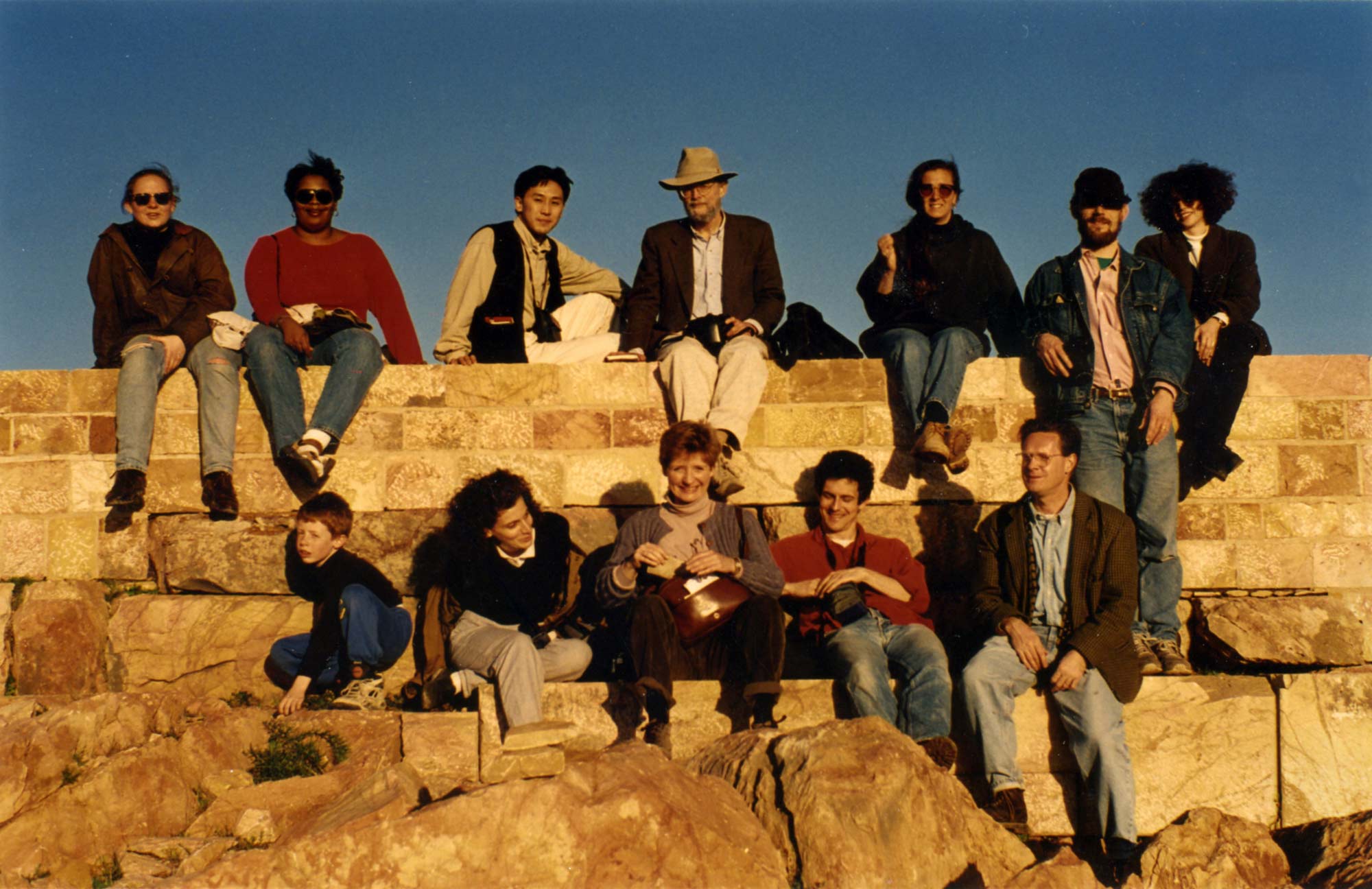Morgantina became a target for looters almost as soon as archaeologists began to uncover the ancient city. There was no way to patrol the 1,000-acre site, especially at night. But Bell fought to protect Morgantina from looters – also called “clandestini” in Italian – even facing threats himself.
“They’ve let the air out of my tires, smashed a window,” Bell said in a 2006 Virginia Magazine story. One summer, he and his students spent the night at the excavation site, sleeping in the trenches. The night patrol worked; the clandestini didn’t show up.
Facing the looters head-on may have seemed at odds with his softspoken demeanor – he was “polite in a Southern way,” Summers said – but it was entirely in keeping with his academic ideals.
When the Metropolitan Museum of Art announced it had bought a collection of ancient Greek silver pieces, but demurred on the objects’ provenance, Bell suspected they had been stolen from Morgantina before an art dealer sold them to the Met. He fought for years to be able to examine the items up close. Bell found an unlikely ally in an infamous graverobber who testified he and a group of men had stolen the silver vessels in 1979. While officials at the Met questioned the accusations, Bell eventually found evidence the silver pieces were, in fact, stolen.
“He was active early on in the struggle over the ownership of art,” Summers said. The fight over who gets to keep cultural artifacts is ongoing in museums across the country and the world.
Bell was instrumental in bringing a gigantic statue of Aphrodite back to Aidone, Italy, located near the Morgantina site. In the 1980s, the Getty Museum in California was in the midst of a buying spree and acquired the statue, which a curator said was among the most important pieces of classical sculpture in history. But there were questions about the statue, as Aphrodite seemed to have appeared out of nowhere. Italian investigators found evidence the statue had been looted. Bell helped bring the goddess home.
“He was dogged,” Summers said – exactly the kind of person who would spend years trying to bring works of art back to the countries where they had been made, in addition to teaching and researching.
Bell’s commitment to the Morgantina site was such that Aidone granted him its first-ever honorary citizenship.
Bell instilled his excitement about the ancient world in his students.
“He would inspire confidence in what he was teaching,” Summers said.
Bell earned numerous recognitions throughout his career, including a John Simon Guggenheim Memorial Foundation Fellowship in 1989, two awards from the National Endowment for the Humanities in 1976 and 1981-82, and an Andrew W. Mellon Professorship at the National Gallery of Art’s Center for Advanced Study in the Visual Arts (1998-2000).
Bell is survived by his wife Ruth, daughter Maggie and son Raphael.




